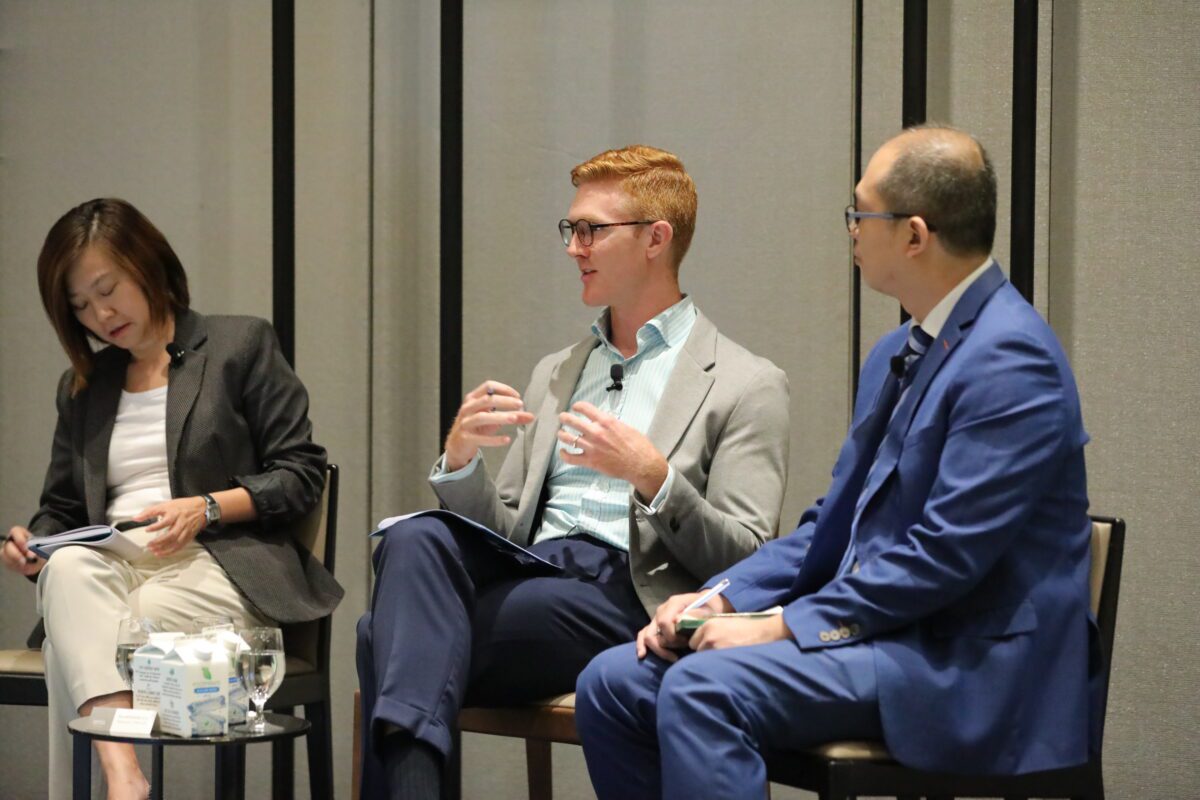The results of the 2022-2023 (FY23) Australian Carbon Industry Code of Conduct (the Code) Annual Review have revealed significant progress in carbon industry best practice, with 85% of Code Signatories assessed as ‘Fully Compliant’ to its latest requirements – compared to 29% of Signatories in FY22.
The Code framework aims to enhance the integrity, transparency and accountability of Australia’s carbon industry, by monitoring, reviewing and defining industry best practice.
Since its launch in 2018, the Code has increased its number of Signatories by 200%, while also expanding its role in the market to encompass social and economic impacts for carbon farming communities, in addition to environmental outcomes. Code Signatories now account for 69% of all land-based ACCU projects in Australia registered since 2018.
Code Review Panel Chair, Virginia Malley said: “The Code has a very important role to play in lifting best practice in the market by pushing the Code Administrator, Code Signatories and supporters to embrace, evolve and adapt to continually elevated industry standards.”
As the market adapts to the implementation of the ACCU Review’s recommendations, the FY23 report was streamlined to include consideration of additional best practice measures, including Signatories’ compliance with free, prior and informed consent (FPIC) consultation processes; the Corporations Act (including Australian Financial Services Licence (AFSL) requirements); and consideration on social, environmental and economic co-benefits.
‘‘We were really pleased to see a positive engagement and a better understanding of key Code requirements by Signatories, such as a reported full compliance with the Australian Financial Services License (AFSL) requirements under the Corporations Act 2001 by those Signatories proving financial and feasibility advice to a client. This is another indicator of a solid improvement in compliance levels over the last few years.’’
“We are also seeing evidence of the industry’s growing commitment to actively engage, partner and collaborate with First Nations People. For example, 52% of Signatories reported that their projects were occurring on land with Native Title rights, compared with 39% reported in FY22.”
“However with a significant proportion of ACCU projects conditionally registered, as has been legally possible in the past under the Carbon Farming Initiative (CFI) Act, there is still plenty of work to do to better embed FPIC and benefit-sharing principles in line with the planned changes to Native Title consent provisions within the government’s ACCU Review Implementation Plan,” she said.
John Connor, CEO of CMI, host of the Code Administrator, said: “The recognition by the ACCU Review that the Code is contributing to integrity in the carbon market was welcome but as the review also noted, there’s always room for improvement. FY23 saw a large uplift in positive engagement from Signatories, including high attendances at Code education and training events and a high quality of information shared in annual compliance reports”.
Key findings from the Code’s FY23 Annual Report included:
- 9 k Stakeholders, Code Signatories and consumers reached during FY23
- 29% growth in Signatories since FY22
- 85% Code Signatories recorded as fully compliant
- 66% decrease in the number of non-compliances under the Code
- 97% of Signatories complied with evidence requests
- 69% of land-based ACCU projects registered since 2018 covered by the Code
- 83% ACCU projects undertaken by Code Signatories after 2018 are conditionally registered
- 33 Code Signatories confirmed commitment to Code requirements for FY24
The Code will also shortly undergo its three-yearly Independent Review, which will seek feedback from governments, the carbon industry, carbon market consumers and First Nations peoples on the performance and future role of the framework. This review will provide important inputs as the Government consults and implements the Code-related recommendations from the ACCU Review, including the consideration of accreditation of carbon service providers to commence later in 2024.
The Code Administrator’s Annual Report 2022-2023 is available on the Code Administrator’s website.
To enquire about the Code or become a Signatory, visit www.carbonmarketinstitute.org/code or send an email to code.administrator@carbonmarketinstitute.org
About The Code
The Code is a voluntary industry code hosted by the Carbon Market Institute (CMI). The Carbon Market Institute (CMI) is a member-based institute accelerating the transition towards a negative emissions, nature positive world. CMI launched the Carbon Industry Code of Conduct in 2018, and it is Australia’s world-first carbon market-related consumer protection code of conduct.
The Code aims to:
- Define industry best practice for Australian carbon market participants including project developers and advisers, and requiring accountability from those participants;
- Promote consumer protection and transparent and appropriate interaction with landowners, Native Title holders and claimants, and stakeholders;
- Provide best practice guidance to Code signatories, including training and workshops;
- Promote market integrity, transparency, and accountability; and
- Display international leadership in Australia’s carbon market
For the annual compliance reporting process, Signatories submit a self-audit checklist to measure compliance with Code requirements over the last financial year and reaffirm an ongoing commitment to implementing the Code standards for the subsequent year.
For media enquiries, contact Thomas Hann on Thomas.hann@carbonmarketinstitute.org
For further information, contact Dayana Flores on dayana.flores@carbonmarketinstitute.org



